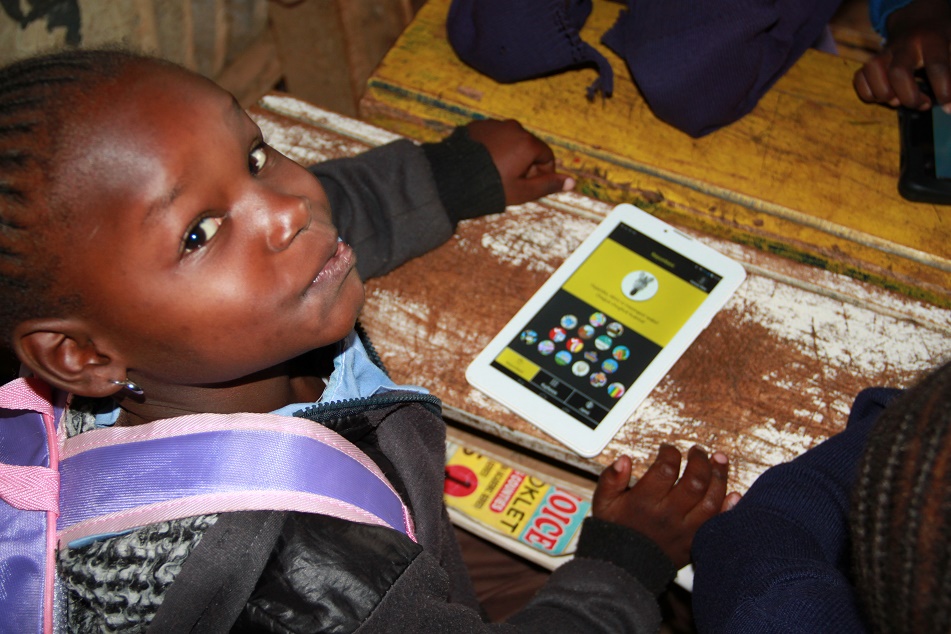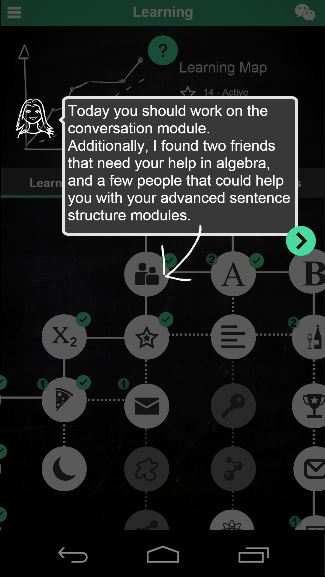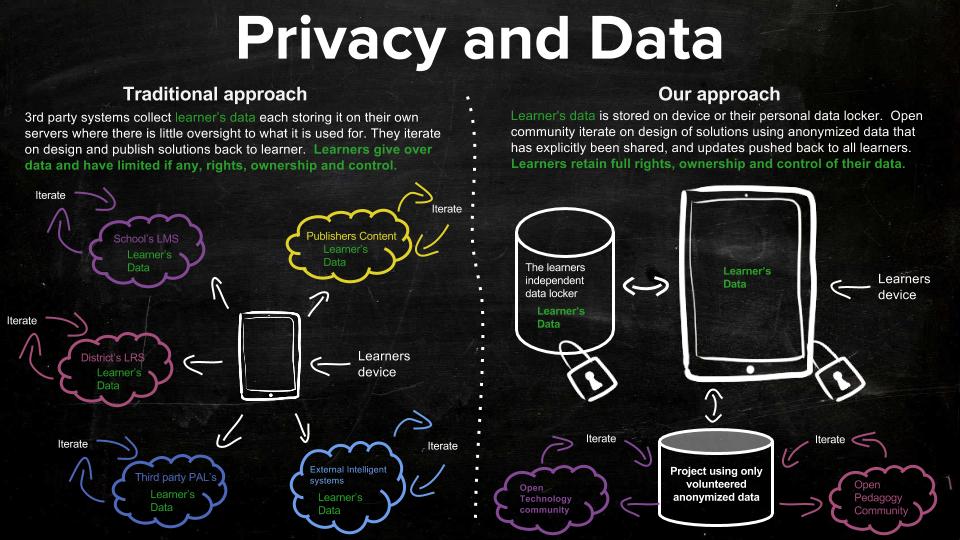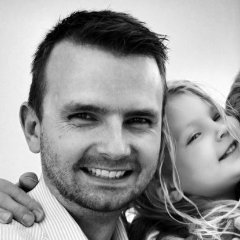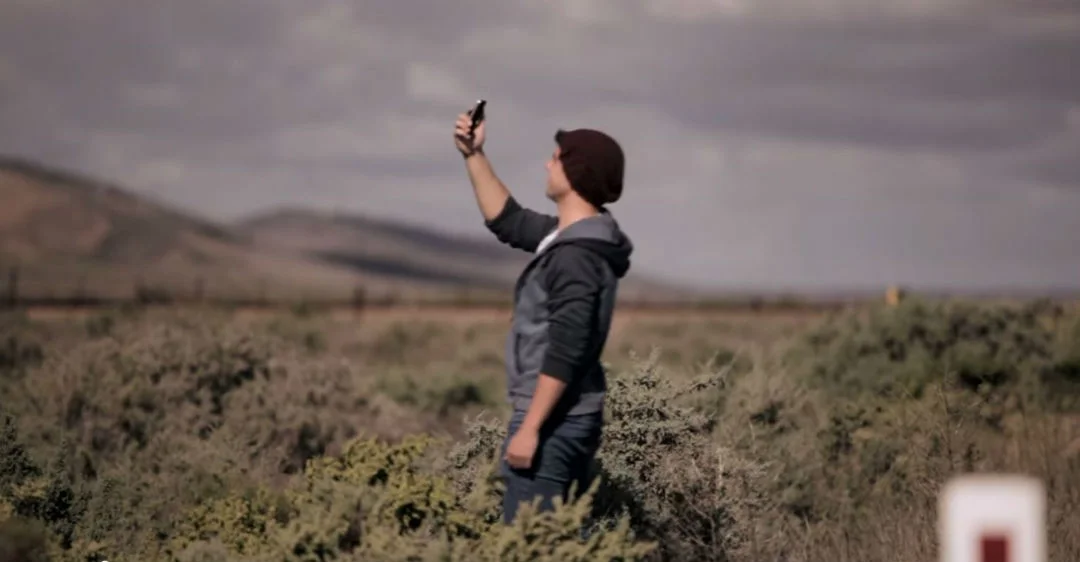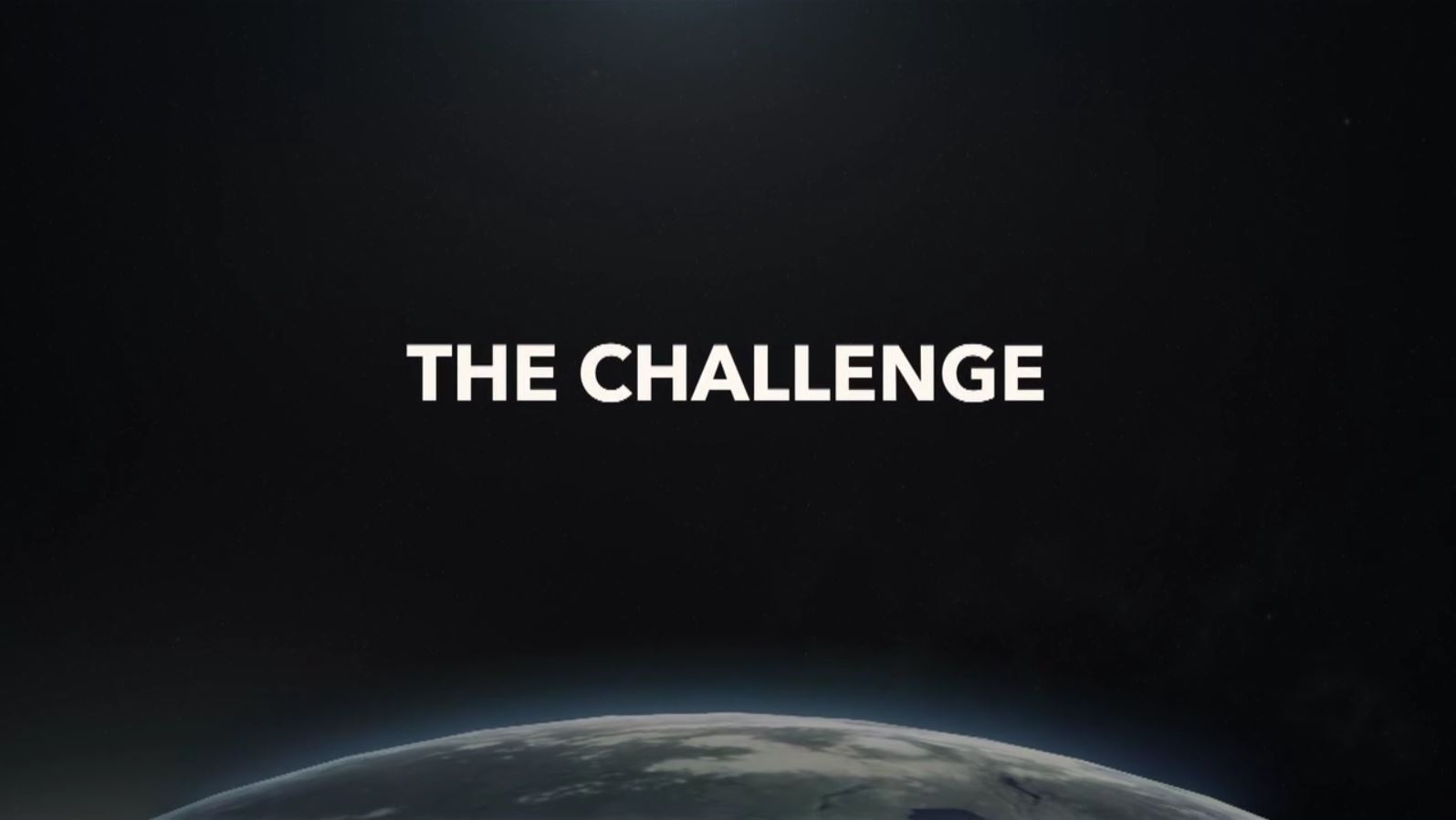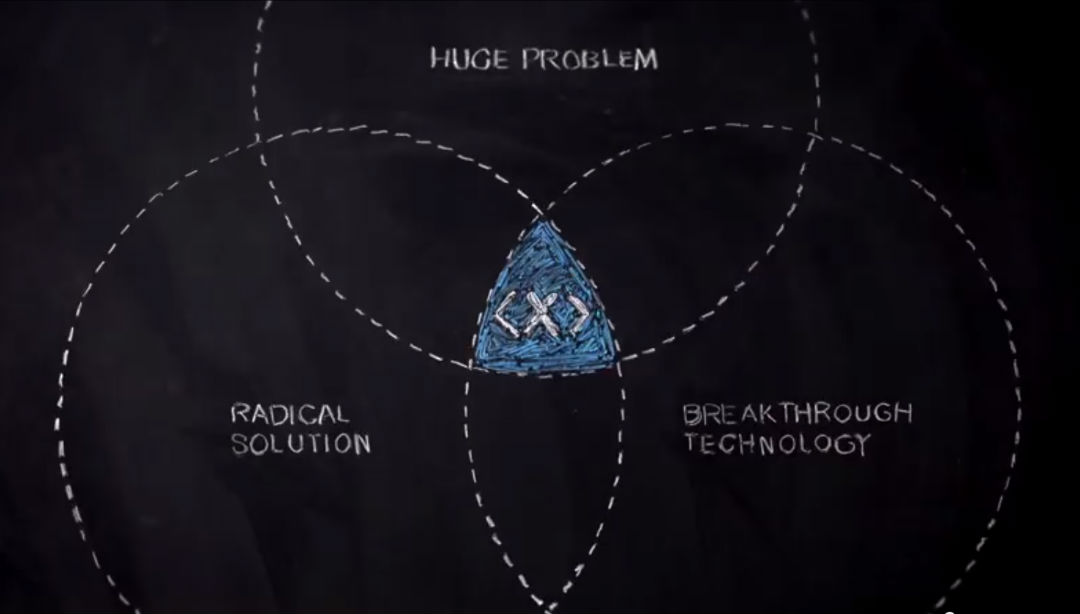
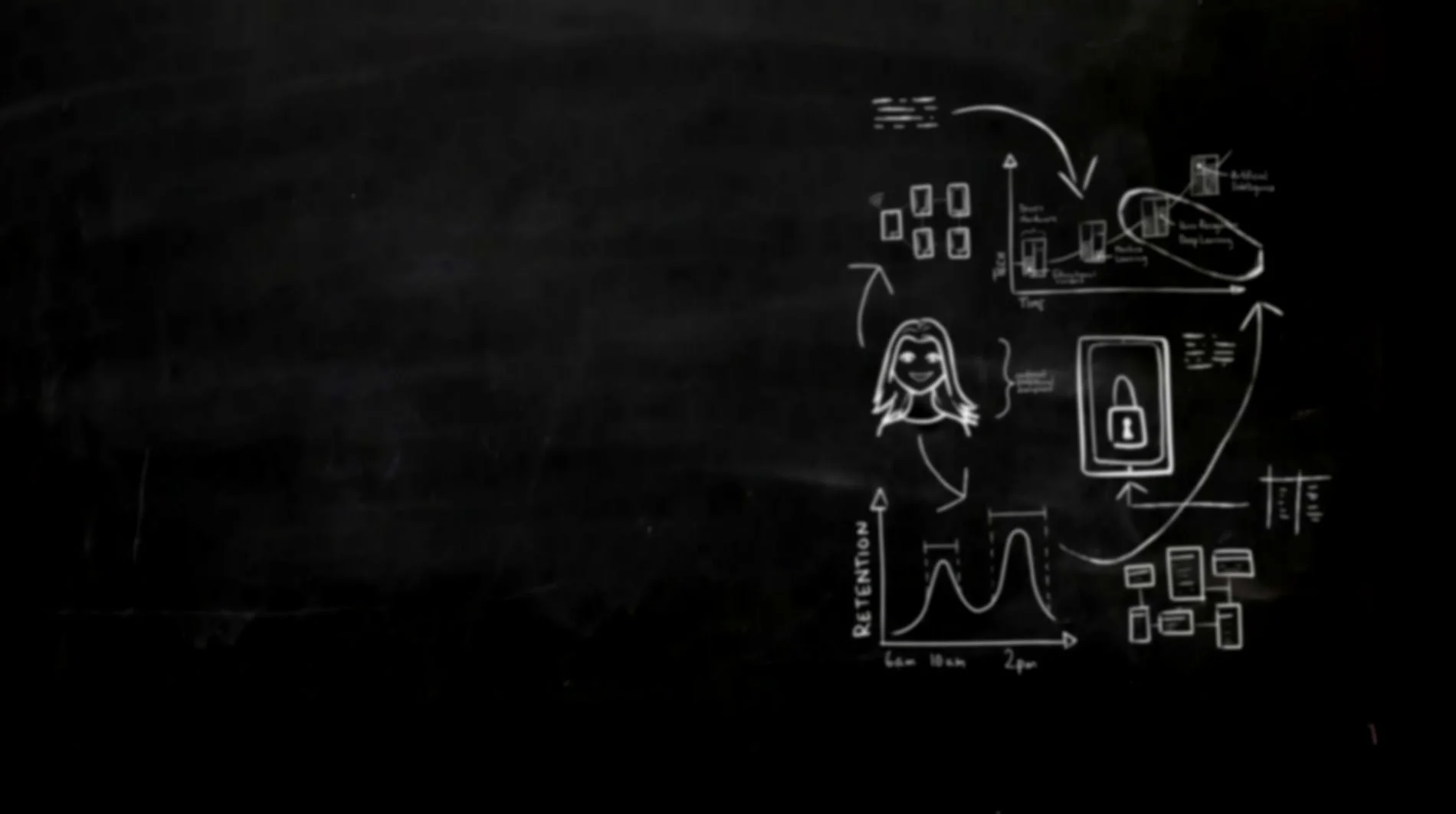



Moonshot Project - Detail
Empowering all children, especially those that do not have access to schools or teachers, to take their learning into their own hands.
Moonshot Project - Detail
Empowering all children, especially those that do not have access to schools or teachers, to take their learning into their own hands.
What we are doing
We now know that children with no prior exposure to modern technology, and without instruction or guidance can start to learn using our software.
We also now know what tools would best empower children to take their learning into their own hands.
And so in this next phase we start to build the tools that children can use to better their ability to self-learn and learn in peer-to-peer groups.

Prototype
The prototype is in the next stage of development, undergoing UX/UI iteration.
Prototype
The prototype is in the next stage of development, undergoing UX/UI iteration.
Prototype
The prototype is in the next stage of development, undergoing UX/UI testing and iteration, in preparation for in-depth field tests. Check back soon for updates and access to this next stage in the prototype.
Old Prototype:
To check out our old conceptual prototype click on the button. DISCLAIMER: This is a conceptual prototype built to start discussions. It does not show what the platform will look and feel like, we are letting the children decide that :)

Pedagogy / Technology
Technology will be their tool, curiosity will fuel their discovery of curriculum, and sharing will be what drives their success.
Pedagogy / Technology
Technology will be their tool, curiosity will fuel their discovery of curriculum, and sharing will be what drives their success.
General approach overview
We at Dev4X are thinking radically different to address this challenge. By providing children who do not have access to traditional schools or teachers with a set of tools that will provide them the opportunity to not only learn but to leapfrog the obsolete traditional education.
SELF-DIRECTED LEARNING TOOLSET:
The first is a toolset designed to enhance their ability to take their learning into their own hands and self-learn. Kids are like sponges they soak up new learning every day, especially about things they are interested in and the tools we are developing enhance their ability and drive to do so. We have various mechanism we are testing and providing these children, the first is the ability for them to explore all there is to learn in their own way, in their own time and without ‘training wheels’. We spoke about this at TEDx earlier this year.
Another mechanism we are testing is a quest-based learning mode, using game mechanics and social mechanics to encourage the learner through learning paths that we are crowdsourcing from experienced educators. Quests could be based on skills they may want to learn, or outcomes that are important to further their learning or topics that peak their curiosity.
PEER-TO-PEER LEARNING TOOLSET:
The second set of tools are designed to enhance these children’s ability to teach others and learn from their friends. We know that one of the best ways of learning is to teach and therefore this is a key toolset that not only increases their ability to learn but multiplies that by also empowering them to teach their friends and their community around them. By facilitating the matching of learners in pairs and groups, and empowering the children to seek out expertise in their friends as they would in the real world we are fostering this collaborative learning approach. At any stage each learner is also a teacher.
PROJECT BASED LEARNING TOOLSET:
Fata, learning how to take care of children affected by ebola from local doctors in Liberia. Image from More Than Me
The third is providing these children purpose and value by empowering them even from a very young age to take an active role in furthering their communities health and well-being. Project-based learning is how most learning takes place in our workplaces and in the real world. It’s here that we are challenged with real-world problems that require creativity, problem solving, collaboration and teamwork. These are the key skills that are needed to be successful today, which is why from the beginning these are inbuilt into our approach. By providing children real world projects, like helping to reduce the spread of malaria in their village, we are not only teaching practical skills but also clearly showing our children that they are valuable, important and don't need to wait until they are out of school before they can make an impact in the world.
After our prototype field tests in East Africa earlier this year, we are continuing to Phase 2 of the project with further testing in Tanzania. We are currently testing mostly analog (Manual, offline, human lead) versions of our digital solutions and as our progress on digital development continues we gradually start testing the digital versions of those. We are aiming for mass impact, validating that our platform works in the most extreme and challenging conditions, like refugee camps and gender-stratified societies, but also as a supplemental tool with our own kids. Our goal is within two years to have a validated market ready platform of tools and content that can be delivered at nearly 0 marginal cost to any smartphone and tablet.
HOW THE TECHNOLOGY WORKS
Students will be able to use ruggedized tablet devices, loaded with engaging educational content to teach them just about anything.
With a built-in tutor they can interact and explore any area of knowledge or be guided with adaptive storytelling.
By connecting devices together in a peer-to-peer mesh network, children will be able to interact, work and help each other, just as if they were in a regular classroom.
THE LEARNING EXPERIENCE
We want to foster the creativity within each child, and develop a deep love of learning by allowing them to explore all they are interested in and infusing that with all they need to learn. We are approaching this through three mechanisms, an adaptive storytelling engine, a free roam explorative learning mode and a social collaboration mode where children learn from one another.
The Open Learning Map
A key part of the technology is the highly adaptable recommendation engine that provides a personalized learning journey to each child even in an offline, informal learning environment. Built on an open learning map pioneered through crowdsourcing the expertise of pedagogy specialists, the platform presents the best learning approach and content to each child based on what it knows about the child and the context they live in. This approach will allow each child to receive guidance and instructions from high-quality educators through software that is able to operate in the most challenging environments.
Personalized, Engaging Learning
A one-size-fits-all, factory education just would not help these children much. We not only provide the most underserved children with an education, we provide them with a revolutionary education that fosters their creativity, their passion and creates a deep love of learning.
THE EDUCATIONAL CONTENT
Content Architecture
The platform is being built to utilize existing content as well as crowdsourced content that could be locally developed via the devices themselves, by the children or by local educators. The open community approach will allow us to quickly expand and address the need for localized, culturally relevant content.
Content is tagged and organized within our open learning map where we are using the 'Tin Can' API to pull relevant usage and learning data to determine the child's progress.
Building for the long term
We have a long term vision, focusing on the current needs of children in early learning and developing the platform in sync with this group. As they grow older and their requirements of the technology become more complex, the technology and computational power required to deliver that complexity will exist.
Exponential technologies —technologies that progress at or quicker than Moore's law— have a way of creeping up on short term focused strategies. Having a long term approach can be used to provide a significant advantage.
Personal Learning Assistant:
We aim to provide the children with highly personalized feedback, guidance and mentorship, even in the absence of teachers —which is the unfortunate environments that so many children are growing up in. To do so we are working on two key approaches. The first, by having the platform be able to matchup children to work together in learning pairs or groups that suite each others strengths and weaknesses (this is detailed more below). And the second approach is to provide the child with personalized guidance based off pedagogy best practices and the data the platform will gather relating to the child's approach to learning.
Dealing with the limitations of current AI
Recognizing the current limitations of offline artificial intelligence (AI), we will initially use basic recommendation engine mechanics enhanced by machine learning algorithms which can adapt the engine to the learners' personalized circumstances and requirements. Additionally at the start it will be focused on the narrow domain of literacy and numeracy and become more complex as we add further domains. This machine learning can be validated and adjusted by the child, their parents or local educators. Thereby creating a supervised learning loop that is localized to the child's environment.
Road map timeline showing how the shift of AI will gradually move from basic tier 1 technology to more advanced technology.
Natural Language:
The children will be able to have meaningful conversations with the device using natural language processing (NLP) technology. We want them to interact with the device as they would a coach or friend, by asking it questions and having it able to reply to those in a meaningful way. Over time this will become uniquely adapted to each child, building on each conversation and using what was discussed previously as the framework for future discussions. Using voice recognition and text-to-speech backed by NLP technology.
The NLP technology will also be used to teach the child pronunciation, effectively using speech recognition in reverse to help them pronounce words correctly —a technique that has been shown to be quite effective by the work of Sugata Mitra.
Mesh Networking and the internet
Mesh Network shown on map
Given the challenges of local connectivity, censorship and privacy we cannot be reliant on the internet. This means that additional methods of networking will need to be leveraged.
The platform will overcome these constraints with mesh networking technology with the ability to create large-scale networks that can connect whole communities. This will be a key technology that will connect each device and allow the platform to initiate collaborative and social learning scenarios (explained further below in mentorship and social learning).
In addition, for the large number of communities that find themselves in conflict zones, disaster areas, refugee camps, areas that censor and monitor communications or areas without any communication infrastructure, the mesh network will provide them significant added utility. The children and their communities will be able to use these networks to phone, message, and communicate with one another, for free, on a decentralized network. We are working with the Serval Project to make this happen.
Mentorship and social learning
A key benefit of networking these devices is that the software can introduce the children to friends that either need their help or could help them. It will also be able to recommend team partnerships for modules like Sugata Mitra's SOEL's that get children to work together and teach each other how to solve problems.
Additionally, to encourage further teamwork and social learning, most modules will have two versions; Knowledge modules and Skill modules. The knowledge module will contain the traditional academic content that needs to be completed. The linked skill module will require the child to practically demonstrate they mastered the knowledge module by teaching another child that skill or completing a practical assignment. This will ensure both academic and practical mastery of the concepts being taught.
For the skills modules and group work, the software will be able to recommend the best partners and team composition. Over time we expect the children will naturally form mentorship bonds with deeper learning taking place as a result.
Privacy and Security
The platform provides analysis of the children's usage data, over time becoming increasingly complex and detailed. This data will reside on the device and, by default, not be shared with anyone, including Dev4x. The learner will have the ability to share work samples or usage data at their own discretion or provide us with anonymized data if they wish to help advance the software. Recognizing the speed at which devices become outdated, the child's personal data can be stored and transferred via an SD card or backups via WiFi to external storage.
Dev4x is focusing both on privacy and on offline usage with low internet connectivity, because of this we had to rethink conventional wisdom of centralized cloud storage. By doing o we need to buck many trends and empower the children and the communities to own and control their data. Our approach here is setting us apart from others and counter-intuitively this approach allows us to scale far quicker and be deployed into areas conventional approaches just cannot reach.
We hope you will help us:

Moonshot Project Team
We are an open, growing community working on this audatious project.
Moonshot Project Team
We are an open, growing community working on this audatious project.
Core Team
Bodo Hoenen is a social entrepreneur and EdTech innovator working on providing education to the most underserved children. Motivated by his young children's self-directed learning he founded Dev4X and hopes to create a future where every child can learn anything they need, even if they don't have access to formal schooling. "We can solve this challenge, there is no need for millions of children to be lost!"
Michael Eydman is a Entrepreneur, Adviser and Innovator, providing business planning, product development and technical solutions. "I strongly believe that everyone should have equal access to education and current lack thereof is the main cause of poverty and world conflicts. I live by a few simple principles: always innovate, provide useful advice, give back and offer gratitude."
Active Community and advisors
Matt Kenigson is a serial tech entrepreneur, current CTO of an amazing customized mobile products company with a very fulfilling social mission to improve lives through education. Specialties: Strategic vision and planning, mobile strategy, product development, software development, lifecycle management, team building, mentoring, innovation, customer focus, agile methodology, project management, open collaboration, remote team management.
Katie’s passion and talent led her organization More Than Me to win $1MM from CHASE bank recognizing Katie as a leading educator. TIME recognized Katie as an Ebola Fighter and 2014 Person of the Year for leading More Than Me in the fight against Ebola. In September 2013, Katie and Nobel Laureate and Liberian President Ellen Johnson Sirleaf cut the ribbon to the More Than Me Academy – the first tuition-free, all-girls academy in Liberia.
Vincent Ogutu, MS, PhD candidate, is an Organizational Behavior scholar who focuses on deeply meaningful work and social entrepreneurship. His experience in education spans his work as the founding MBA Director at Strathmore University and his earlier years as a high school Deputy Principal in Africa. He is actively engaged in promoting social innovation initiatives in several countries, and inspiring people to connect more meaningfully to their lives.
James Stanfield works alongside Professor Sugata Mitra at SOLE Central. His research interests include spontaneous orders, self organizing systems and emergent behavior in education. He is also responsible for the management and development of the School in the Cloud web platform.
Thibault Sorret is a student at McGill University, in Montreal. He's fascinated by the use of exponential technologies to help improve the field of education and is author of an accelerated learning program.
Thierry Karsenti, M.A., M.Ed., Ph.D. holds the Canada Research Chair in Technologies and Education. He is also a Full Professor at the University of Montreal and the director of the CRIFPE (Research Center on Teachers and Teacher Education). He published more than 20 books and 250 scientific articles on the use of technologies in education, on teacher education and on e-learning. Professor Karsenti also worked on a variety of projects in more than 30 countries in Africa.
Stuart Holmes, M.Eng, B.Sc, is an Aerospace Engineering Consultant & Project Manager with over 5 years experience, working with the Airbus Group and their industrial partners, on major aircraft modifications. Competitively driven to win the Global Learning XPrize and deliver meaningful impact to children in the developing world. He is currently based in Bristol, UK
Jeff Bennett is a serial Entrepreneur, Technologist, Strategist and Developer. Founder and CEO of Desktop Anywhere, Director at Logical Method Inc.
Phaedra de Saint-Rome is an undergraduate Honours double major in Political Science and History at McGill University. Phaedra is passionate about sustainable investing, social entrepreneurship, and international development, and has worked at several foundations around the world.
Hiroshi E. Shiina - is a business and IT professional with a habit of challenging the status quo. An employee of Google by day, but dedicates much of his free time to supporting DEV4X. "I have finally found a vehicle that can enable millions of children out of poverty." Specialties including strategic management, sales strategy, coaching, mobile marketing, and philanthropy.
Anthony DiFlorio is a senior at Seton Hall University. He has a keen focus on the nexus of international development, technology, and education.
Chetan Pinto is an Executive Resume Writer and a Linkedin Profile specialist who is very passionate about life-long learning . Besides helping out with the copy-writing and social media requirements of the Dev4X team his interests include leadership development using a process called Appreciative Inquiry.
Natalie researches and implements Educational Technology which combines her experience in Play, Technology and Indigenous Education. Through Social Media, she participates in global communities of Mobile Learning, Moodle Learning Management Systems, Gamification Designers, Google Apps For Education and Technology Innovation Groups.
Jimm Meloy is a NYC based innovator, learning architect, producer, mentor & non-executive director. His current projects include learning architecture, ed-tech, virtual reality, UN2030 SDG goals, persuasive technologies, 4D design, makers, STEAM, sharing economy, cultural impact & governance and working with early stage startups.
Miles Lasater is a serial entrepreneur, Founder, Former President/COO and Board Member of Higher One. Founder and Director of SeeClickFix. Host of Startups 4 Good podcast.
Dean Thompson is an accomplished software engineer and experienced entrepreneur. His most recent startup, acquired by LinkedIn, used AI techniques to deliver personalized news content. Dean advises Dev4X on how to bootstrap an organization and gain momentum as a Moonshot team.
Avron Barr studied artificial intelligence, cognitive science, and instructional technology at Stanford. He edited 'The Handbook of AI' and co-founded a Silicon Valley start-up, Teknowledge, that was acquired in 1986. Currently he is focused on the rapid evolution of educational technology.
Michael Sutton is an Associate Professor at the Bill and Vieve Gore School of Business, Westminster College (WC), in Salt Lake City, UT. His current applied research work focuses on architecting and delivering gamification environments using serious games and simulations. His Career spans across many organizations from Microsoft to various UN Agencies.
Andrew Cohen is the Founder/CEO of mobile education startup Brainscape. Cognitive science & metrics geek. Mentor at TechStars. Instructor at General Assembly.
Diana Sharp is a learning scientist with a Ph.D. in Cognitive Psychology. She has spent over twenty-five years exploring research on the promises and pitfalls of technology for reading development. She has worked on numerous projects aimed at transforming the way that children learn to read, and in 2012 she was named a global leader in the field of early-grade literacy and technology by Microsoft’s Global Strategic Education Partnerships division.
Niketan Valapakam is an undergraduate management student at McGill University. He has a keen interest in using strong business acumen in solving large social problems.
Amita Krautloher is a University lecturer with a passion for innovation in learning and a keen interest in "liberating" people through education to break the cycle of poverty. She has been a business mentor to SMEs and been involved in many social projects. She applies her skills as a Business strategist and a Project Manager to all her roles.
Robert Eckart is currently the managing director of CodeChamps who recently facilitated the design and buildout of a wireless multimedia and internet access system into the Trans Siberian passenger trains. His background includes the design and installation of a unique village wireless education kiosk network for farmers - which was prototyped and installed in 2009 with the guidance of the former royal family in Afghanistan. Eckart will bring his first hand knowledge of field realities to help shorten development time on the Moonshot Project.
Jake Fischer is pursuing an economics degree at the Wharton School of Business. He is passionate about emergent technologies and how they can be utilized to further social development.
Tim Young has completed a MSc in Psych, and a PG Cert Educational Psych. His thesis involved extensive research into face-to-face group learning and online group learning. Tim is the founder of the website educationthesedays.com. He has a passion for science and the use of technology to provide educational games that include the resources someone needs to alleviate themselves and their community from poverty.
A Growing Global Community
We are a growing group of over 150 amazing volunteers, advisors and supporters, several PhD’s and neuroscientists, numerous educators, technologists and designers, with more joining each week.
See interactive map here
Our Friends, PARTNERS and community
The Shuttleworth Foundation is a social investor that provides funding to dynamic leaders who are at the forefront of social change.
Ashoka is the largest network of social entrepreneurs worldwide, putting their system changing ideas into practice on a global scale.
The Serval Project - Our Mesh networking and partner. You can read the press release here.
Princeton AI - Our Natural Language Processing and AI partner. You can read the press release here.
The Global Literacy Project, a consortium of academic and community institutions including MIT & Tufts.
The School in the Cloud is helping students prepare for the future through Self-Organised Learning Environments.
Google Solve 4 X is a connector, bringing diverse individuals and organizations together to work on moonshots. They are supporting & showcasing our project.


















